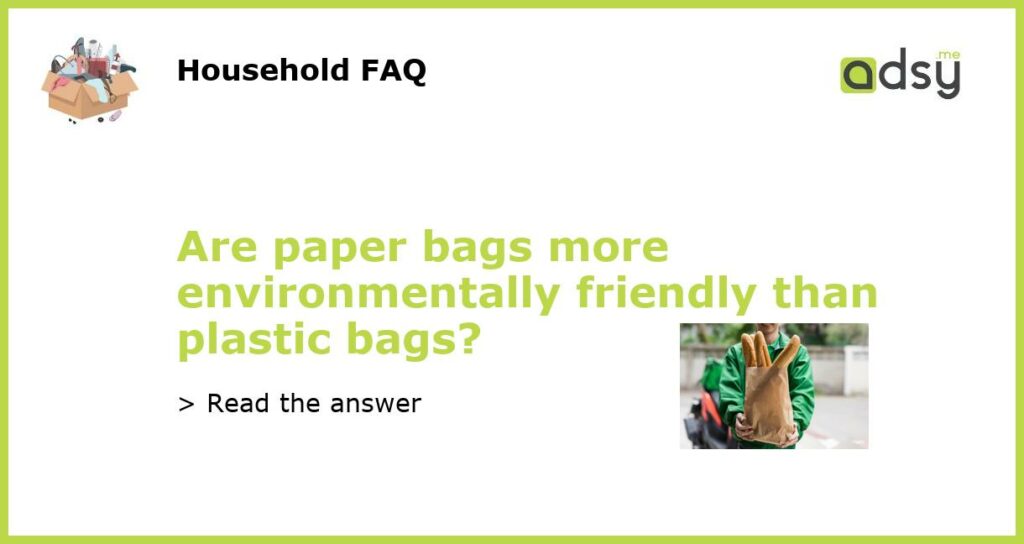The Environmental Impact of Paper Bags
Paper bags are often touted as the more environmentally friendly option when compared to plastic bags. This is due to the perception that paper bags are made from a renewable resource – trees – whereas plastic bags are made from non-renewable fossil fuels. However, the environmental impact of paper bags is not as straightforward as it seems.
The Deforestation Issue
One of the main concerns with paper bags is the impact on deforestation. In order to produce paper, trees need to be cut down. This has led to large-scale deforestation in many parts of the world, causing loss of biodiversity and contributing to climate change. While efforts have been made to promote sustainable forestry practices, the demand for paper bags has still contributed to deforestation.
Energy and Water Consumption
The production process for paper bags requires significant amounts of energy and water. Trees need to be harvested, transported, and processed into pulp before being made into bags. This process consumes a large amount of fossil fuels and water, contributing to greenhouse gas emissions and water pollution. In comparison, plastic bags require less energy and water during production.
Recycling and Disposal
One of the arguments in favor of paper bags is that they are biodegradable and can be recycled. While this is true, the recycling process for paper bags also requires energy and water, and not all paper bags are recycled. Plastic bags, on the other hand, can be recycled into new plastic products or used to generate energy through waste-to-energy facilities. However, plastic bags are not biodegradable and can take hundreds of years to break down in the environment.
Overall Environmental Impact
When considering the overall environmental impact, it is important to take into account the entire life cycle of both paper and plastic bags. This includes factors such as production, transportation, use, and disposal. While paper bags may seem more environmentally friendly because they are made from a renewable resource and can be recycled, the reality is that their production process and the associated deforestation have significant negative consequences for the environment. Plastic bags, although made from non-renewable resources, have a lower overall environmental impact when considering factors such as energy and water consumption.






